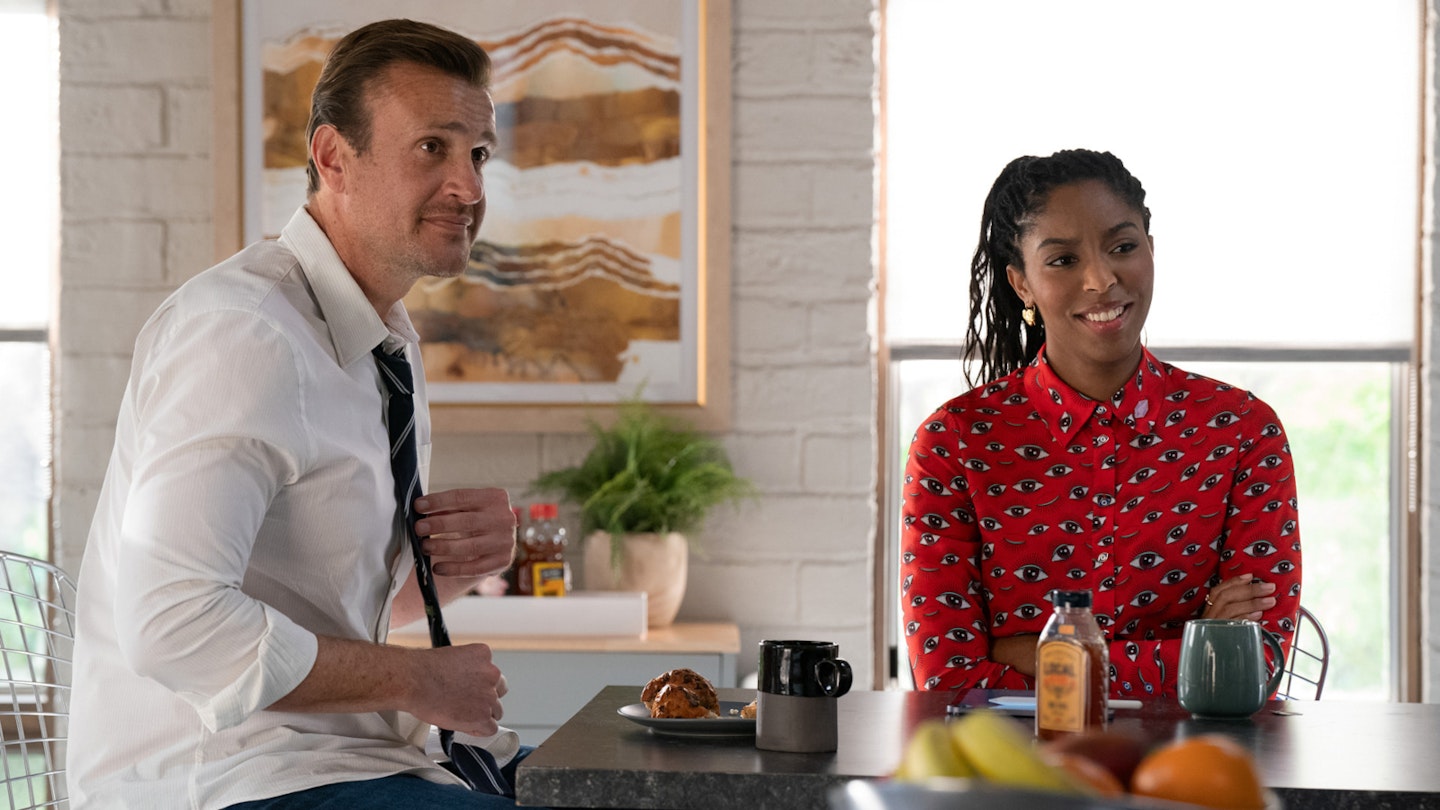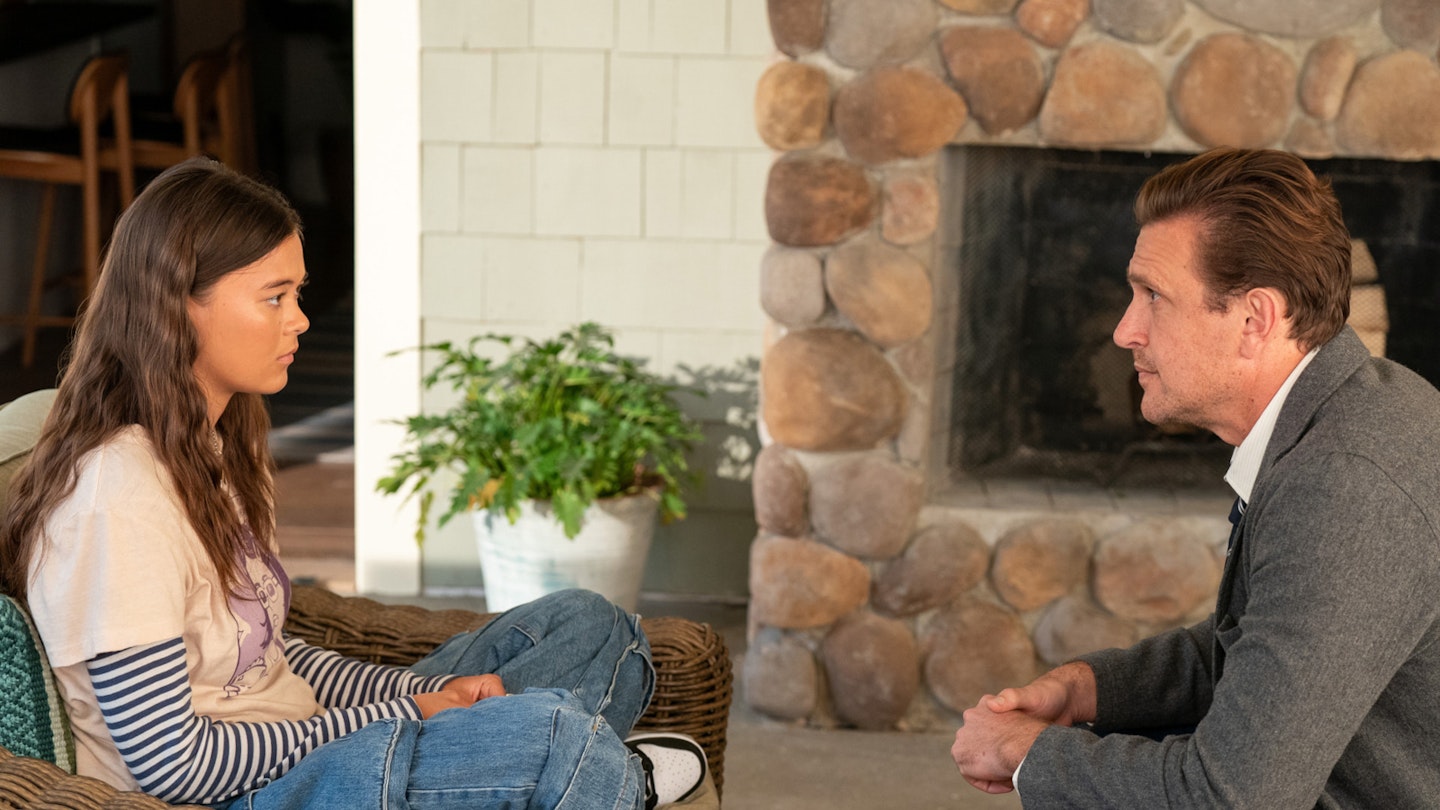Streaming on: Apple TV+
Episodes viewed: 11 of 12
Having successfully smuggled a weekly dose of therapy into three seasons of football sitcom Ted Lasso, Apple cut out the middle man with the first season of Shrinking. Aiming for that same _Lasso_ian sweet spot between puerility and poignance, the show (from Lasso co-creator Bill Lawrence, Brett Goldstein, and Jason Segel) introduced us to psychotherapist Jimmy Laird (Segel). Still grieving the loss of his wife, Jimmy decides to go rogue with his patients, telling them what he really thinks — much to the chagrin of colleagues Gaby (Jessica Williams) and Paul (Harrison Ford).

In many ways, Shrinking’s first outing replicated the experience of therapy-going pretty accurately — if not so much in content, then certainly at least in form. The early throes were a little tense, a little quick to overcompensate for trauma-dumping with uneasy humour, and a little slow to really open up and begin letting moments of sincerity and vulnerability pierce its sardonic armour. But by the end of Season 1, it really did feel like we were starting to make some progress with Jimmy, with his co-workers and his daughter Alice (Lukita Maxwell), and with his clients. Now, with Lawrence, Goldstein and Segel having put in the necessary-if-occasionally-arduous foundational work, both theirs and our perseverance is richly rewarded by the greater depths explored — and greater heights reached — in Season 2.
To call Ford's work here among the most emotionally entrenched and vulnerable of his career may sound hyperbolic, but it’s entirely accurate.
If Shrinking’s first block of televisual therapy was all about grief and Jimmy’s journey back to living in the moment, rogue therapy tactics and all, then this sophomore season is one consumed with the altogether more opaque notion of forgiveness — of the struggles that come when trying to reconcile with the past when you’ve only just begun to make peace with a new present. It’s a challenging idea to tackle, and one that sees Segel bring new textures — of self-doubt, combustible anxiety, rage, even — to his goofball-dad-with-a-broken-heart, whose journey takes unexpected, bold turns as this series progresses.
Given just as much heavy lifting to do second time around is Harrison Ford, whose crotchety shrink Paul Rhoades was the first season’s real revelation. And the octogenarian acting icon continues to play Paul’s struggle with his progressing Parkinson’s beautifully, understatedly. To call his work here among the most emotionally entrenched and vulnerable of his career may sound hyperbolic, but it’s entirely accurate. His quiet grace and palpable fear as Paul’s tremors worsen, his smouldering chemistry with Wendie Malick’s Julie, and a vulnerable moment shared with Segel in the penultimate episode that’d thaw even the coldest of hearts all speak to a performance — and a role — quite unlike anything Ford’s played before. At the same time, it’s also a part that continues to highlight Ford’s comic chops — the sight of the man who gave us Indiana Jones and Han Solo saying “Do you want me to pull my pants down and make my ass clap?” is only one of several instantly iconic new Paul moments in Season 2.

It’s worth pointing that there is a lot going on here as the show makes the leap from a ten- to 12-episode run. Liz (Christa Miller) and Derek’s (Ted McGinley) marriage hits the skids; Sean’s (Luke Tennie) recovery from post-military service PTSD is complicated by the reappearance of his estranged father; and Jimmy’s pals Brian (Michael Urie) and Charlie (Devin Kawaoka) have a whole queer adoption arc as the series progresses. But even if it can at times feel like old habits dying hard for the show, with one too many disparate plot threads begging to be woven into its otherwise tight 30-minute tapestry, Lawrence and co keep things focused by continuing to invest in the core characters we’ve already come to know and love (yes, Jessica Williams continues to be a shining light as the indefatigable Gaby — and yes, expect more carpool karaoking with Paul), seamlessly integrating the series’ newcomers in a way that broadens rather than muddies Shrinking’s horizons going forwards.
Most potent among said newcomers is Brett Goldstein’s Louis, a figure from Jimmy and Alice’s past who has a vital part to play in their journey towards making peace with their trauma. Goldstein’s courageous subversion of his Roy Kent persona from Ted Lasso sees the actor bring a real nuance and rawness to a figure whose success as a character hinges entirely on the empathy he engenders.
There’s only so much heft you can expect from a show with episodes titled ‘Psychological Something-isms’ and ‘I Love Pain’, and despite the richer storytelling second time around, the dial is still resolutely set to ‘bright and breezy’ across this latest run of episodes. This very much operates in the Schitt’s Creek mould of what we might call ‘aspirational realism’ — and viewers’ mileage will undoubtedly continue to vary, especially when it comes to the resolutions of certain arcs involving Jimmy’s clientele from the first series. But two seasons in, armed with a cadre of rootable characters, consistently incisive writing, and an infectious faith in our capacity to make peace with our flaws and overcome our traumas, Shrinking has become appointment viewing.
